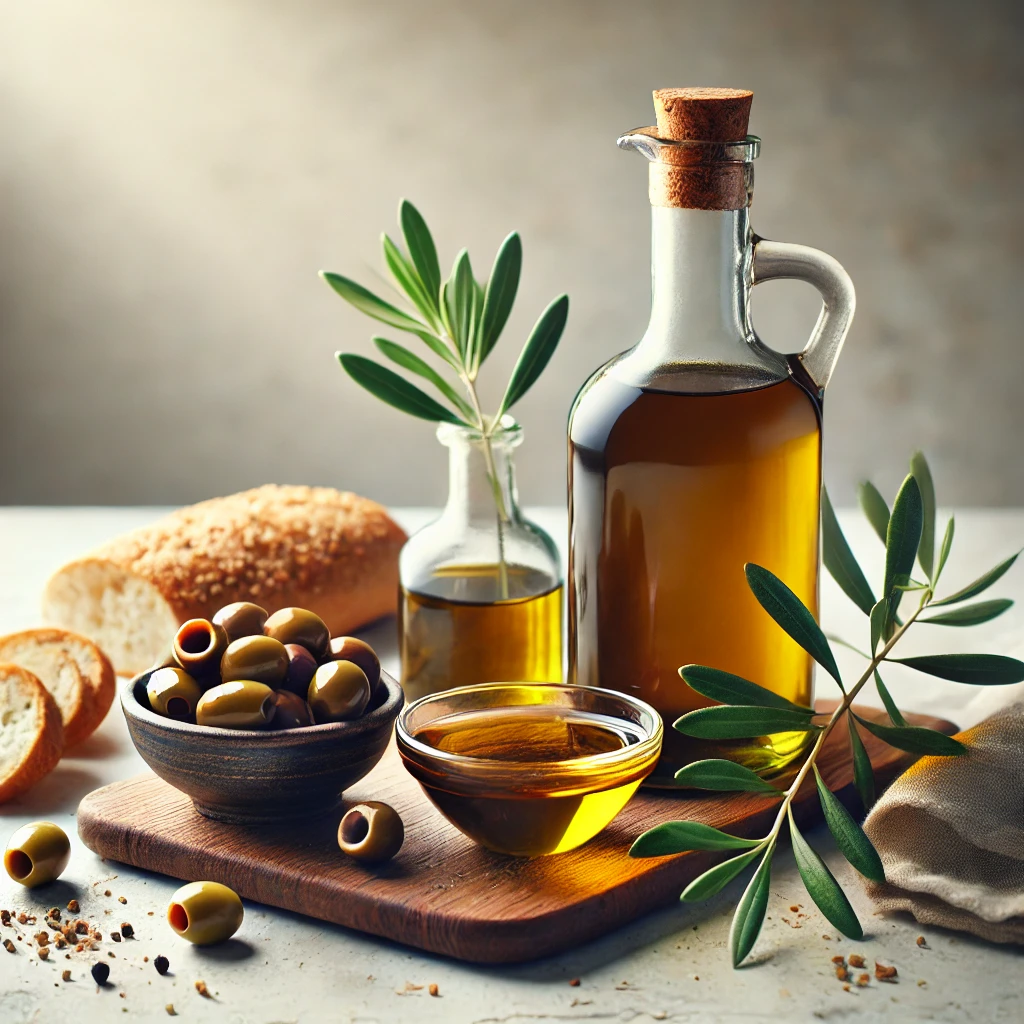
In Greek cuisine, olive oil is more than just an ingredient; it’s a way of life. Revered as “liquid gold” since ancient times, olive oil holds a place of honor in Greek kitchens, influencing the flavors and health benefits of countless dishes. Its rich taste, vibrant color, and healthful properties make it indispensable in traditional and modern Greek cooking. From dressing salads to frying fish, olive oil plays a vital role in enhancing the taste and nutritional value of Greek meals.
In this article, we’ll explore the significance of olive oil in Greek cuisine, its historical importance, and its health benefits, showing how this simple yet powerful ingredient continues to shape the Mediterranean diet.
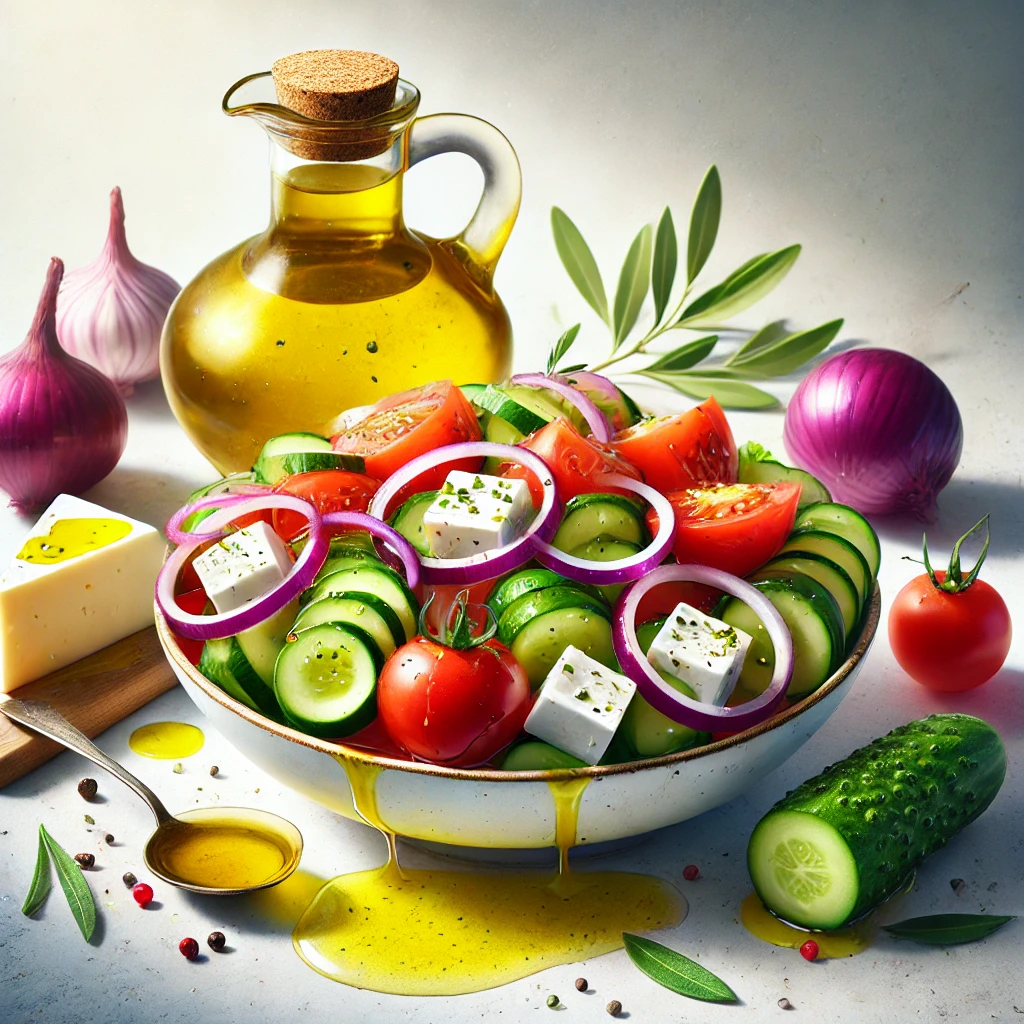
The use of olive oil in Greek cooking dates back thousands of years. Olive trees have been cultivated in Greece for more than 5,000 years, and the oil derived from their fruit has always been highly prized. In ancient times, olive oil was not only a staple in the diet but also used in religious ceremonies, medicine, and cosmetics. It was considered sacred, symbolizing purity and longevity.
Today, olive oil remains a key element of Greek culture and cuisine, passed down through generations as an essential part of daily life. It’s woven into every meal, and no Greek kitchen is complete without it.
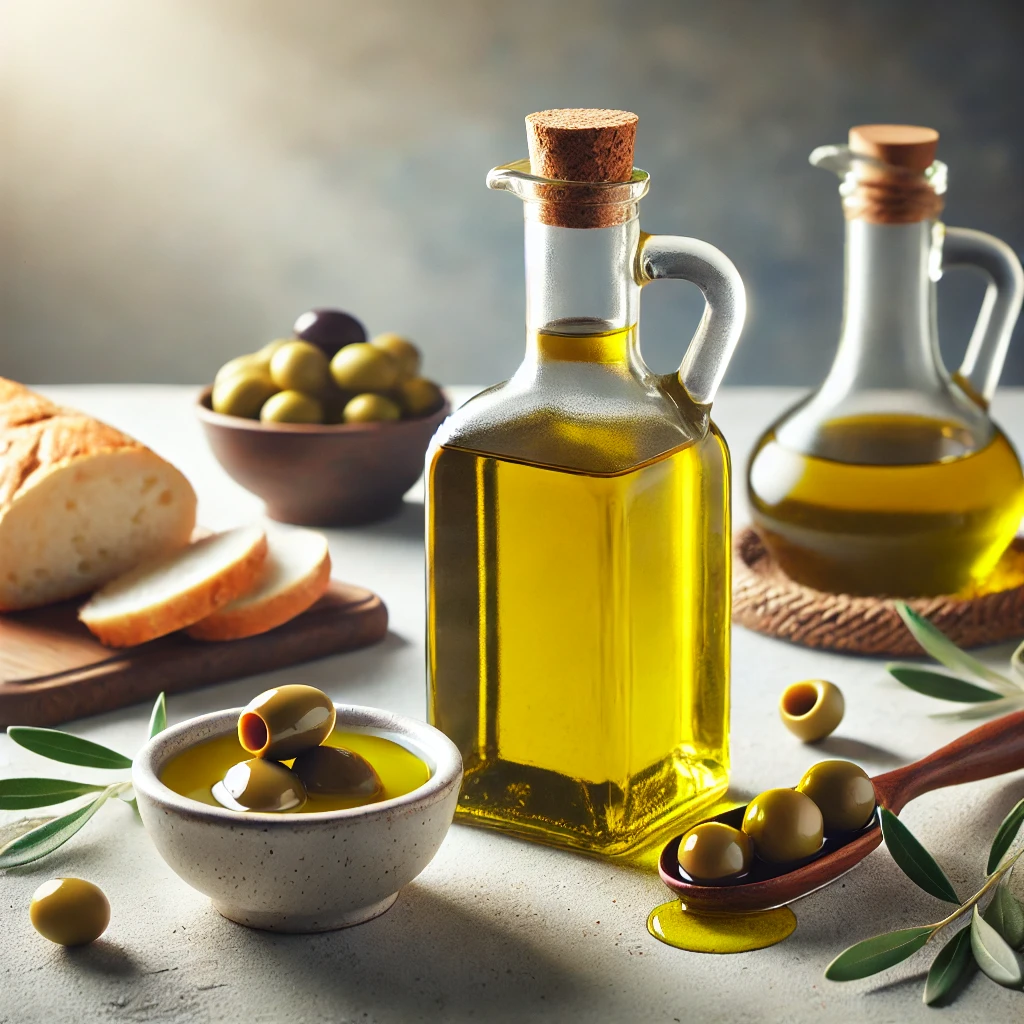
In Greece, olive oil is more than just a cooking fat—it’s part of the national identity. Olive trees are often passed down through families, and many rural communities still produce their own oil, using traditional methods. Family recipes often include specific ways to use olive oil, whether in bread-making, preparing sauces, or marinating meats.
Greek olive oil is also known for its high quality, with regions like Crete and Kalamata producing some of the world’s finest extra virgin olive oils. These oils are celebrated for their flavor, aroma, and purity, and are often used in raw form to dress salads, drizzled over grilled vegetables, or served simply with bread.
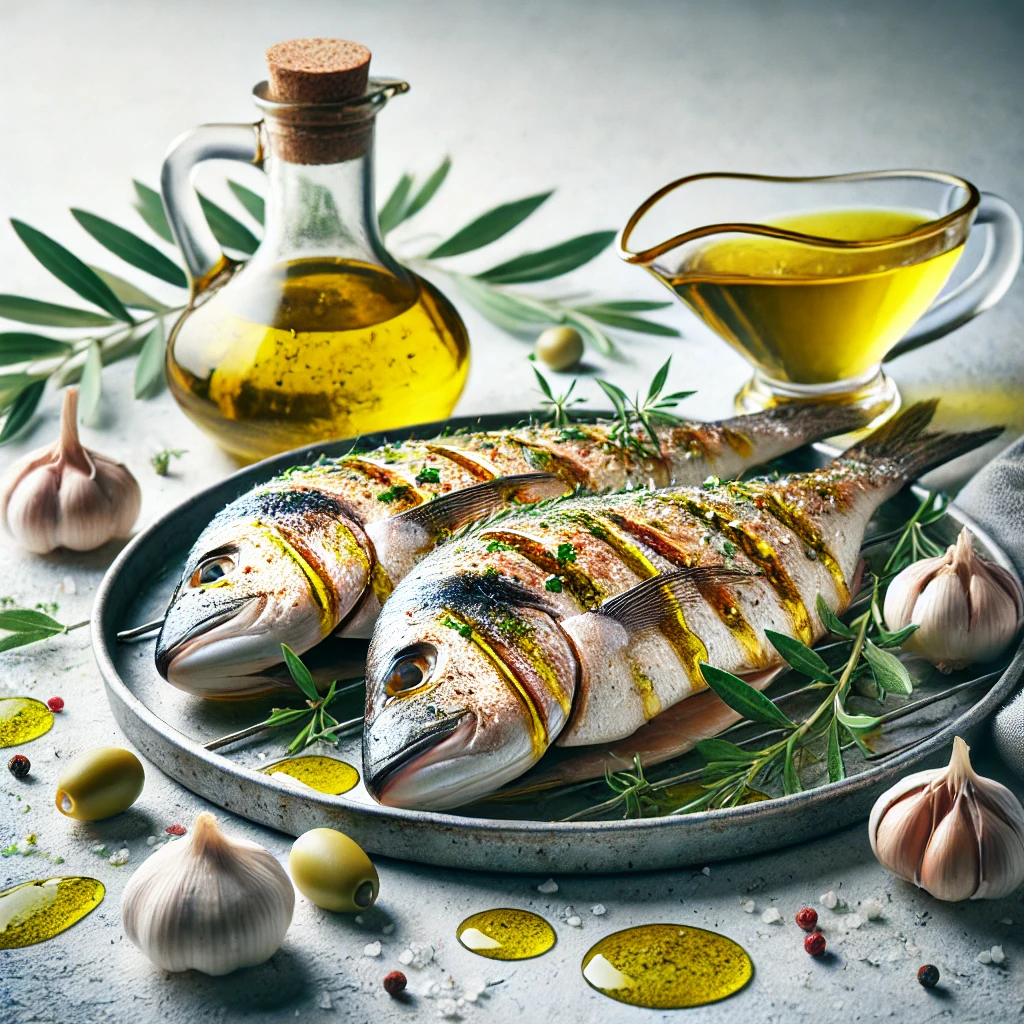
Olive oil is incredibly versatile and plays a variety of roles in Greek cooking. Whether used for sautéing, roasting, or dressing, it is the foundation upon which many classic dishes are built.
One of the most common uses of olive oil in Greek cuisine is as the base for sauces and dips. For example, tzatziki, the popular yogurt-based dip, often includes a drizzle of olive oil for richness. Another example is skordalia, a garlicky dip made from potatoes or bread, which relies on olive oil to achieve its creamy texture.
Olive oil also forms the foundation of many marinades, adding depth of flavor to meats, fish, and vegetables before grilling or roasting. By marinating in olive oil, herbs, and spices, Greek dishes take on an extra layer of complexity.
In Greek cooking, olive oil is often added at the very end of cooking to enhance the flavor of a dish. Dishes like horiatiki (Greek salad) are often drizzled generously with olive oil, along with a squeeze of lemon juice or vinegar. The oil not only adds a silky texture but also amplifies the flavors of the vegetables, herbs, and cheese.
Freshly grilled fish, roasted vegetables, or legumes like gigantes (giant beans) are also finished with a good glug of olive oil, adding richness and moisture while allowing the natural flavors of the ingredients to shine.
Olive oil’s relatively high smoke point makes it ideal for frying and sautéing in Greek cooking. Dishes like kolokithokeftedes (zucchini fritters) and loukoumades (Greek donuts) are often fried in olive oil, which gives them a crisp, golden crust without imparting a greasy texture.Sautéing vegetables, garlic, and onions in olive oil is a common first step in preparing many Greek dishes, such as stews and casseroles. The oil adds a subtle richness and brings out the natural sweetness of the vegetables.
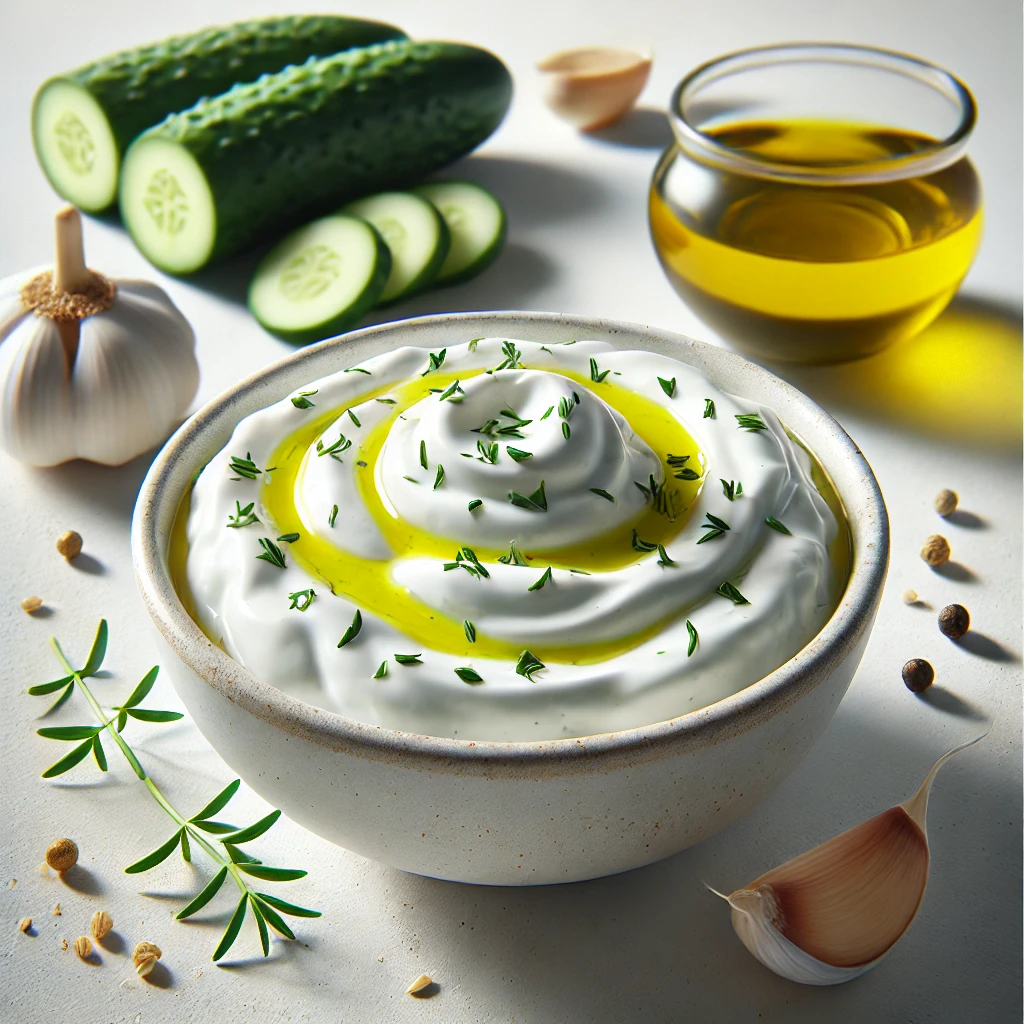
In addition to its culinary importance, olive oil is celebrated for its many health benefits. Extra virgin olive oil, the highest quality form, is rich in monounsaturated fats, antioxidants, and anti-inflammatory compounds, making it a cornerstone of the Mediterranean diet, which is associated with numerous health benefits.
One of the most well-known benefits of olive oil is its positive impact on heart health. The high levels of monounsaturated fats in olive oil help reduce bad cholesterol (LDL) and increase good cholesterol (HDL), lowering the risk of heart disease. Studies have shown that people who follow a Mediterranean diet rich in olive oil have lower rates of cardiovascular disease.
Olive oil contains powerful antioxidants, such as oleocanthal, which have anti-inflammatory properties. These compounds have been shown to reduce inflammation in the body, potentially lowering the risk of chronic diseases such as arthritis, Alzheimer’s, and some cancers.
Extra virgin olive oil is a natural source of antioxidants, which help protect cells from oxidative stress and damage caused by free radicals. This antioxidant-rich profile makes olive oil a valuable part of a diet that promotes longevity and reduces the risk of age-related diseases.
Olive oil is not only nutrient-dense but also helps with weight management. Despite being a fat, olive oil has been shown to contribute to feelings of satiety, meaning it helps you feel fuller for longer, which can prevent overeating. Including olive oil in your diet can help maintain a healthy weight and provide a balance of healthy fats that support metabolic function.
In addition to its internal health benefits, olive oil is also beneficial for the skin. It’s rich in vitamin E, a key nutrient that helps protect the skin from damage and keeps it moisturized. Many Greeks use olive oil topically as part of their beauty routine, applying it to the skin and hair for its nourishing and hydrating properties.
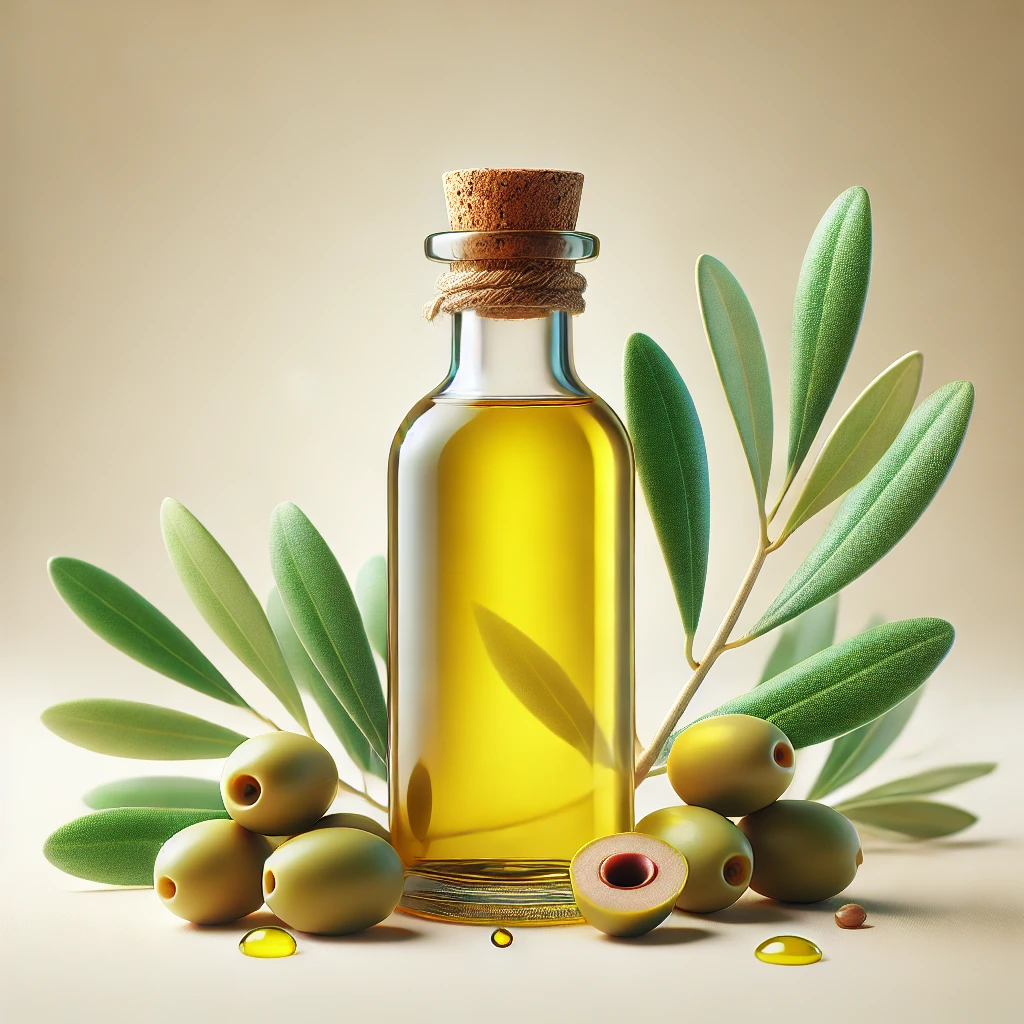
To get the most out of olive oil, it’s important to choose high-quality extra virgin olive oil. Look for labels that specify “extra virgin,” which means the oil has been extracted using natural methods and has not been treated with chemicals. The best olive oils are cold-pressed, which preserves their flavor and nutrient content.
Olive oil is the heart and soul of Greek cooking. Its rich flavor, versatility, and incredible health benefits make it an essential ingredient in nearly every Greek dish. Whether used for frying, drizzling, or as the base for sauces, olive oil enhances the natural flavors of the Mediterranean diet while contributing to a healthy lifestyle.
Next time you cook a Greek dish, take a moment to appreciate the role of olive oil—not just as an ingredient, but as a symbol of the rich culinary traditions and healthy living that have been part of Greek culture for millennia.